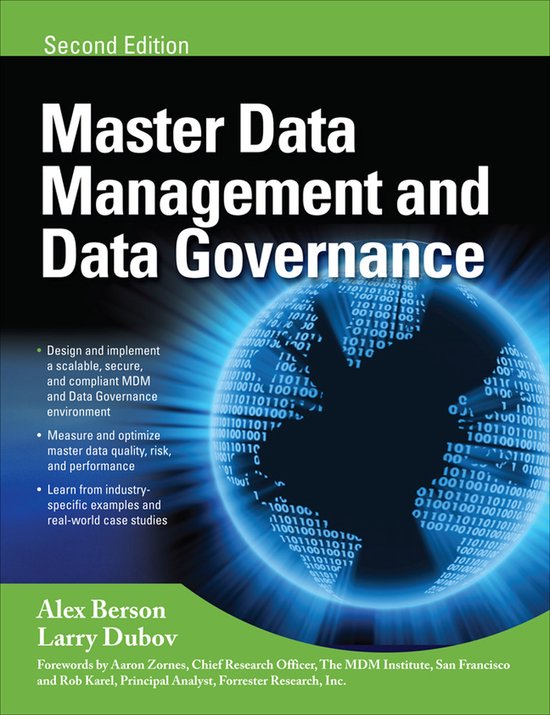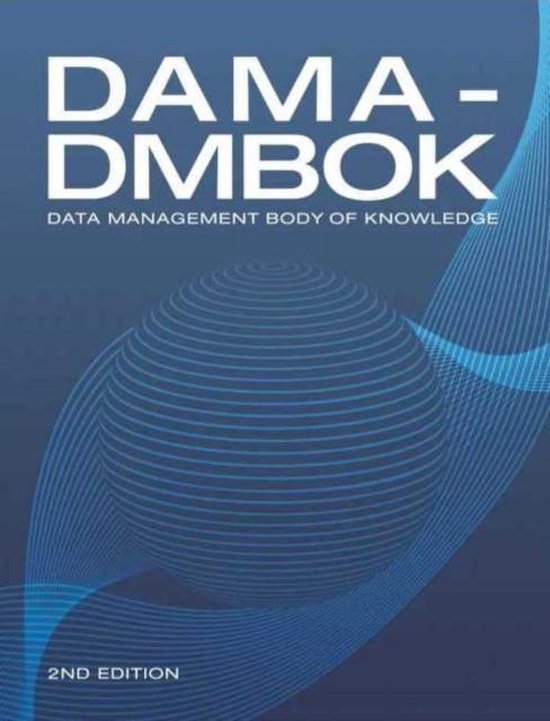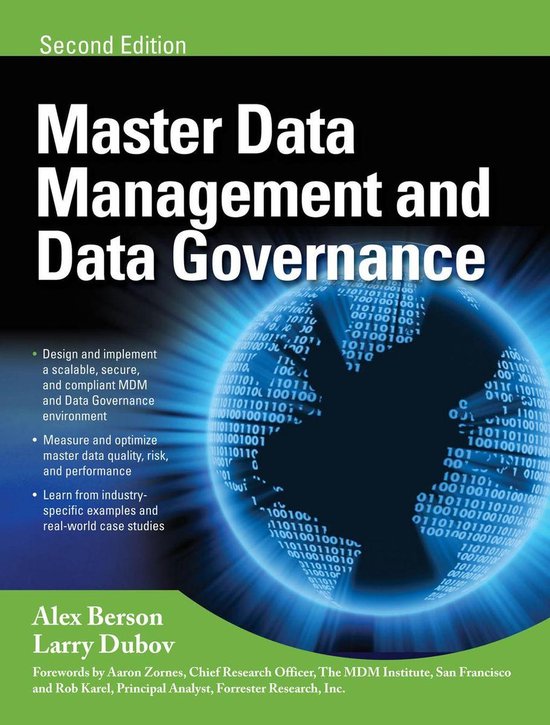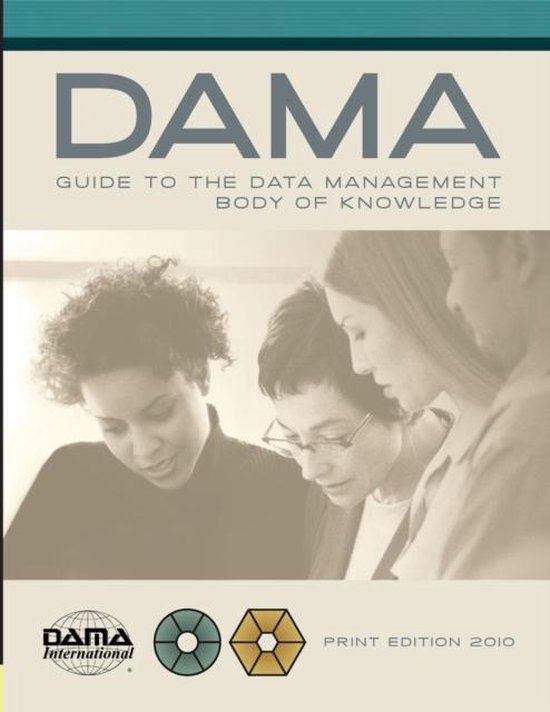Master data management data governance

1 - 2 weken
This comprehensive revision of the premier resource on master data management (MDM) provides a common framework for the understanding and implementation of MDM initiatives.
“This is a great book about MDM and its impact on our businesses, governments, and in many ways most of our lives. Written in a simple and effective style, it tells the story of how Master Data Management works, what it does, and why we should care very much how it is governed. If you have any interest in MDM, Data, or Information Governance, read this book.” –Steven B. Adler, CIPP, IBM Information Governance Solutions
“The authors have appreciated that MDM is a complex multidimensional area, and have set out to cover each of these dimensions in sufficient detail to provide adequate practical guidance to anyone implementing MDM. While this necessarily makes the book rather long, it means that the authors achieve a comprehensive treatment of MDM that is lacking in previous works. This makes the book especially valuable as a reference work.” –Malcolm Chisholm, Ph.D., President, AskGet.com Consulting, Inc.
“In this book, Alex Berson and Larry Dubov convey the many facets of the value of adopting master data management techniques while ably articulating an implementation roadmap. By maintaining the need to incorporate business process modeling, master data modeling, master metadata management, and data governance, the authors properly frame the necessary ideas for organizational preparation while still providing deep technical detail about both architecture and algorithms. This book is a definite addition to the MDM body of knowledge.” –David Loshin, President, Knowledge Integrity Incorporated
“Alex and Larry have done it again: published a very comprehensive, highly applicable book on MDM and Data Governance that achieves an excellent balance between thought-provoking academic treatment of some very technical subjects, and highly relevant, usable advice on how to achieve success in implementing a successful MDM and Data Governance program. This is a must-read for any program sponsor, CIO, CTO, enterprise architect, information architect, data steward, program manager or practitioner of MDM and Data Governance. This is not a read-and-forget book, but a great reference manual. –Martin Moseley, Chief Architect, CTO, Information Agenda Tiger Team, IBM Software Group
“This work is one of the most comprehensive, clear, well-researched, and insightful guidebooks on master data management and data governance. Larry and Alex did an exceptional job covering these complex topics from many viewpoints including technical, business, architectural, security, industry, social, international, product, and regulatory perspectives. I was so impressed at the level of detail and how much is in this book. The book covers critical principles, concepts, emerging trends, and misconceptions, based upon the author’s extensive experience and research and clarifies keys in creating successful MDM and data governance programs.” –Len Silverston, Best-selling author of The Data Model Resource Book, Volumes 1, 2, and 3
“Clearly, Alex Berson and Larry Dubov were hard at work tackling the tough topic of master data governance before the software vendor community had yet found religion (as the market now has `active’, `passive,’ and my favorite `passive-aggressive’ data governance flavors among the many marketing variations).” –Aaron Zornes, Chief Research Officer, The MDM Institute, San Francisco
Publisher's Note: Products purchased from Third Party sellers are not guaranteed by the publisher for quality, authenticity, or access to any online entitlements included with the product.
The latest techniques for building a customer-focused enterprise environment
Regain control of your master data and maintain a master-entity-centric enterprise data framework using the detailed information in this authoritative guide. Master Data Management and Data Governance, Second Edition provides up-to-date coverage of the most current architecture and technology views and system development and management methods. Discover how to construct an MDM business case and roadmap, build accurate models, deploy data hubs, and implement layered security policies. Legacy system integration, cross-industry challenges, and regulatory compliance are also covered in this comprehensive volume.
Plan and implement enterprise-scale MDM and Data Governance solutions Develop master data model Identify, match, and link master records for various domains through entity resolution Improve efficiency and maximize integration using SOA and Web services Ensure compliance with local, state, federal, and international regulations Handle security using authentication, authorization, roles, entitlements, and encryption Defend against identity theft, data compromise, spyware attack, and worm infection Synchronize components and test data quality and system performance- 1 Bekijk alle specificaties

Prijs:


Taal: en
Bindwijze: Hardcover
Oorspronkelijke releasedatum: 16 januari 2011
Aantal pagina's: 504
Illustraties: Nee
Hoofdauteur: Alex Berson
Tweede Auteur: Larry Dubov
Co Auteur: Larry Dubov
Hoofduitgeverij: MCGQ
Editie: 2
Extra groot lettertype: Nee
Product breedte: 178 mm
Product hoogte: 32 mm
Product lengte: 229 mm
Studieboek: Ja
Verpakking breedte: 231 mm
Verpakking hoogte: 29 mm
Verpakking lengte: 231 mm
Verpakkingsgewicht: 1133 g
EAN: 9780071744584